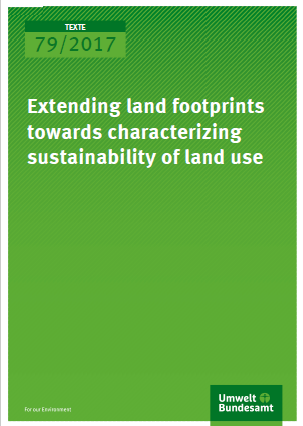Land Footprint – Evaluation of Existing Studies and Development of Impact Oriented Land Use Indicators
- Project
- Duration
-
-
Fertile land areas to produce agricultural and forestry products are globally only available in a limited amount. The land footprint is a suitable indicator in order to assist the analysis of global land use related to consumption of a country or region and to monitor land use. Within this study a review of land flow studies and accounting methodologies is undertaken in order to elaborate recommendation for the methodology of future land footprint calculations. However, the land footprint is as an area-based indicator and unable to illustrate a large number of land-related environmental issues. The project therefore also provides an overview and discussion on possible environmental impact oriented indicators. Finally, the project team undertakes a calculation of possible indicators for the case of Germany based on the developed recommendations.
In a globalized world with complex supply chains and trade relations, consumption patterns in one place drive environmental changes including changes in land use and management elsewhere. The related environmental and social impacts elsewhere are hardly visible and regionally decoupled. Land footprints and their impact-oriented extensions can provide a useful assessment of consumption related environmental impacts on land.
While the first area-based indicators, i.e. indicators using hectares as their accounting unit, have already been developed more than a decade ago, impact-oriented indicators are just recently discussed in academia and policy contexts.
The objectives of the project are threefold
- To review and evaluation of existing land flow studies and accounting methodologies in order to provide a basis for the elaboration of recommendations for the further development of robust consumption-based land use indicators.
- To provide an overview of possible environmental impact related land management and land use change related indicators
- Conduct calculations of possible indicators for Germany






